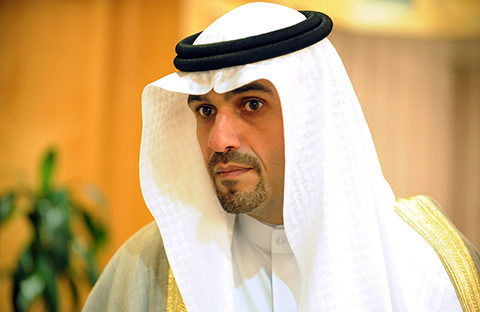 Finance Minister Anas Al-Saleh
Finance Minister Anas Al-SalehKUWAIT: The Banker magazine, a sisterly issue of the internationally renowned business newspaper The Financial Times, has designated Kuwaiti Finance Minister Anas Al-Saleh as the Finance Minister of the Year 2017 for the whole Middle East.
The Banker editorial is honoring Saleh, who doubles as Deputy Prime Minister of the State of Kuwait, in its annual release, proclaiming the Finance Minister of the Year, earning the relevant award which aims to celebrate officials, worldwide, that have best managed to stimulate growth and stabilize their economy during turbulent times.
Strong positions
According to the editorial, "Kuwait is weathering the lower commodity price environment well, particularly when compared to its oil-producing peers. Backed by strong fiscal and external positions, the country (Kuwait) is expected to register gross domestic product (GDP) growth of 2.5 percent in 2016. Improvements to the investment environment, coupled with the government's strong commitment to capital spending, have gone some way to supporting this growth".
That being said, long term challenges remain as the "heavy dependence on oil-related revenues will hit the country's finances much harder in the coming years". However, in The Banker's opinion, Minister Al-Saleh is responding to these challenges with "an ambitious program of reforms in partnership with other government agencies" which materialize the government's strong will to balance public finances as well as diversify the economy."
Minister Saleh is praised for introducing changes that "represent the kind of long-term vision that is required during a deeply challenging time for oil producers across the globe," The Banker editorial said. The Banker elaborated on the State of Kuwait's reform program, including re-pricing of goods and services as well as introducing of value-added tax-masterminded by Minister Saleh in coordination with other government agencies.
Reform plan
It said, in part quoting Minister Saleh as saying, "The reform plan, comprising more than 40 initiatives over the short and medium term, materializes the government's strong will to balance public finances as well as diversify the economy.
"Such diversification will focus on increasing national and foreign sectors' contribution to the economy through development of the public-private partnership projects, fostering small and medium-sized enterprises, initiating a nationwide privatization strategy as well as increasing the ease of doing business in our country.
Further steps to rein in public spending includes improving government efficiency, rationalizing subsidies and reforming the public sector wage system. Taken together, this represents one of the boldest reform programs among the GCC states. - KUNA










